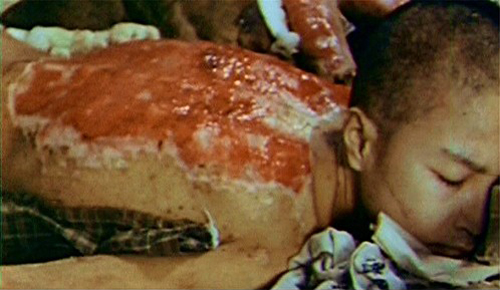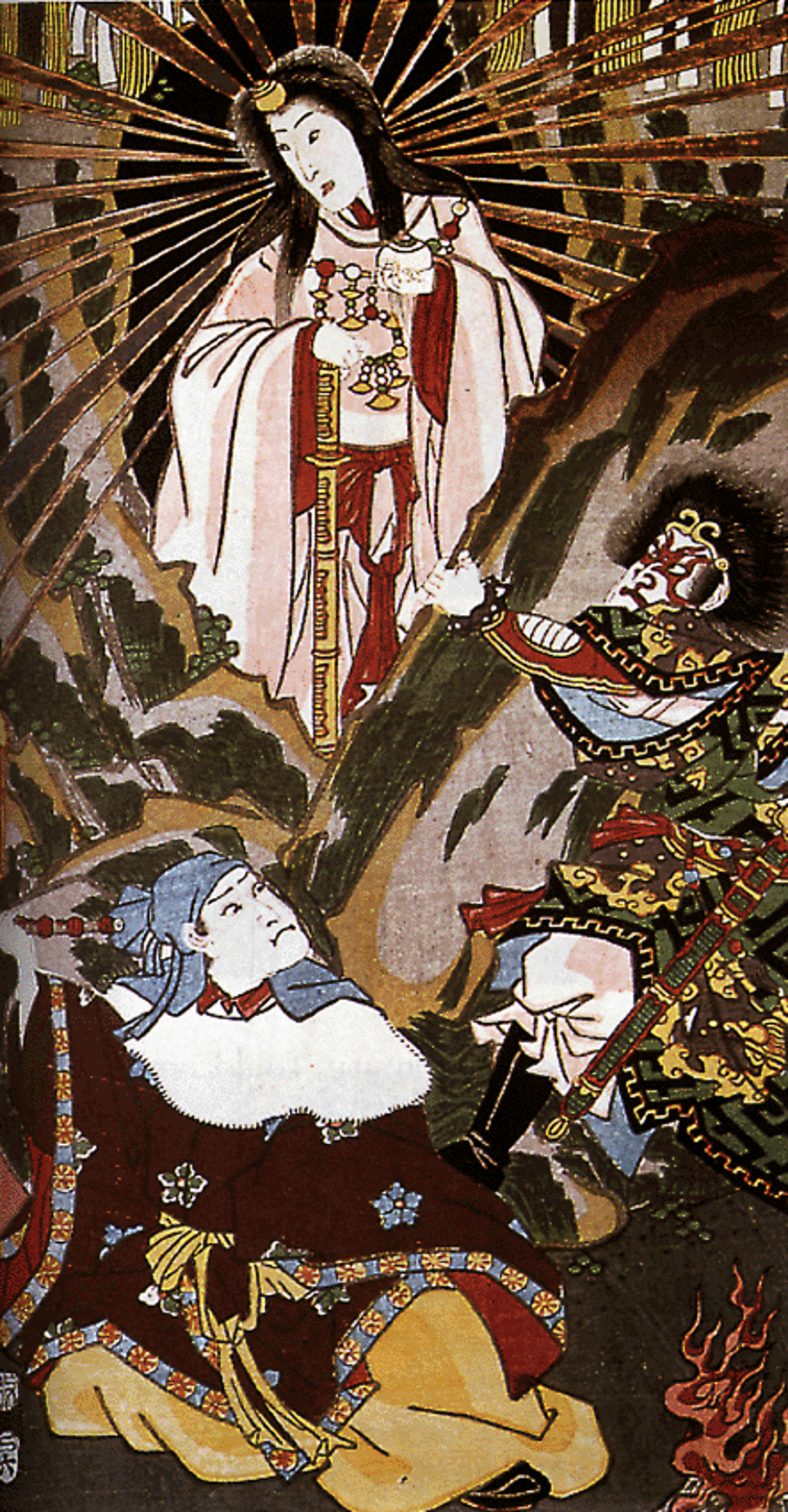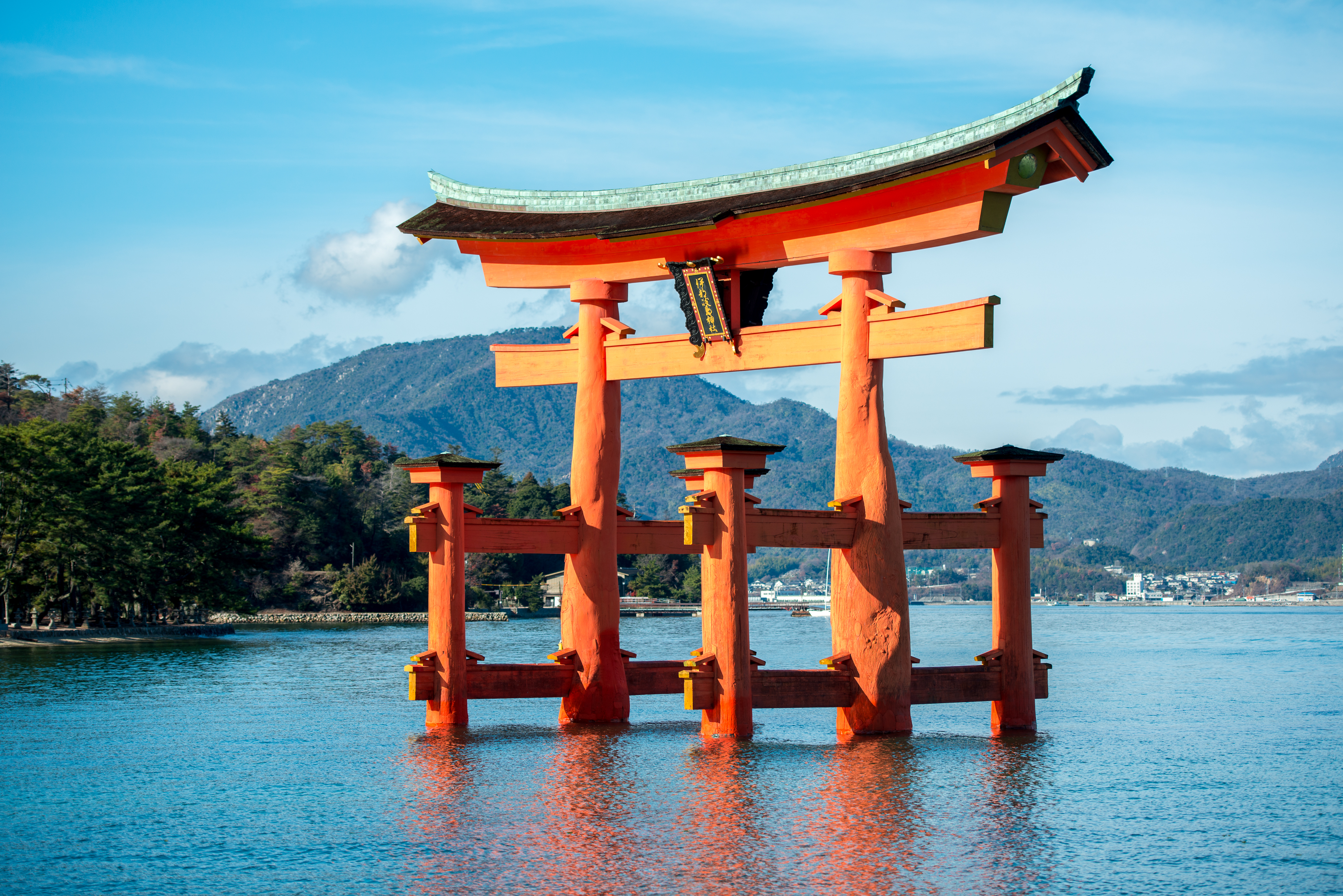|
Beautiful Shining People
''Beautiful Shining People'' is the second novel by Michael Grothaus, first published in 2023. The novel is coming-of-age speculative literary fiction set in the near future and deals with the themes of isolation and belonging in an increasingly technological world. It also examines the ways artificial intelligence, deepfakes, and the weaponization of social media will impact geopolitics, society, and cultural norms in the decades ahead, and explores how technological advances are often coopted by governments to assert or maintain power. Though a future-set novel, real-world historical events like the atomic bombing of Hiroshima focus heavily in the story. Grothaus has said his personal experiences in Hiroshima, Japan influenced the writing of the novel. Plot summary ''Beautiful Shining People'' is primarily set in the future Tokyo, Japan sometime in the 2040s against the backdrop of a digital Cold War waged between the United States and China as part of their superpower ri ... [...More Info...] [...Related Items...] OR: [Wikipedia] [Google] [Baidu] |
Michael Grothaus
Michael Grothaus (born August 1977) is an American novelist and journalist. He is best known for the novel '' Beautiful Shining People'' and for his writing about internet subcultures in the digital age. Biography Michael Grothaus was born in Saint Louis, Missouri in 1977. In 1998 he began attending Columbia College in Chicago where he studied film and journalism. During his college years he started writing for Screen magazine, covering the local Chicago film industry. After graduating Grothaus took an internship with 20th Century Fox at the Cannes Film Festival in Cannes, France. He would later use this experience as a basis for his first novel During his early 20s Grothaus worked for the Art Institute of Chicago, eventually writing and directing a children's film for them. Grothaus then left the creative fields to pursue a career with Apple. In 2007 he moved to London to study creative writing at the University of London, where he earned his MA in creative writing with Di ... [...More Info...] [...Related Items...] OR: [Wikipedia] [Google] [Baidu] |
Hiroshima Peace Memorial Park
is a memorial park in the center of Hiroshima, Japan. It is dedicated to the legacy of Hiroshima as the first city in the world to suffer a Atomic bombings of Hiroshima and Nagasaki, nuclear attack at the end of World War II, and to the memories of the bomb's direct and indirect victims (of whom there may have been as many as 140,000). The Hiroshima Peace Memorial Park is visited by more than one million people each year. The park is there in memory of the victims of the nuclear attack on August 6, 1945, in which the United States dropped an atomic bomb on the Japanese city of Hiroshima. The Hiroshima Peace Memorial Park was planned and designed by the Japanese Architect Kenzō Tange at Tange Lab. The location of Hiroshima Peace Memorial Park was once the city's busiest downtown commercial and residential district. The park was built on an open field that was created by the explosion. Today there are a number of memorials and monuments, museums, and lecture halls, which draw over ... [...More Info...] [...Related Items...] OR: [Wikipedia] [Google] [Baidu] |
SciFiNow
''SciFiNow'' was a British magazine formerly published every four weeks by Kelsey Media in the United Kingdom, covering the science fiction, fantasy and horror fiction, horror genres. It launched in April 2007, with the print publication ceasing in May 2020. In 2010, ''SciFiNow'' won the Best Magazine award at the Fantasy Horror Award ceremony in Orvieto, Italy. Kelsey Media acquired the title as the results of Future plc acquisition of previous owner Imagine Publishing in 2016. Future already owned competitor ''SFX (magazine), SFX'' and the company decided to divest ''SciFiNow'' a year later. Kelsey Media published the magazines until issue 171. Following the print magazine's closure, ''SciFiNow'' transitioned to an online only media presence, publishing daily news, interviews, reviews and competitions covering films, TV shows, books and comics in the Science Fiction, Horror and Fantasy genres. In addition to the content on its own website, longer features and archival pieces fr ... [...More Info...] [...Related Items...] OR: [Wikipedia] [Google] [Baidu] |
Midwest Book Review
Midwest Book Review, established in 1976, produces nine book-review publications per month. Organization Midwest Book Review was established in 1976. The editor-in-chief of the organization is James A. Cox. The review puts out nine publications on a monthly basis, with a focus on community and academic library organizations, booksellers, and the general reading public. The organization maintains a website at www.midwestbookreview.com. Publications produced by the organization include: ''The Bookwatch'', ''California Bookwatch'', ''The Children's Bookwatch'', ''Internet Bookwatch'', ''Library Bookwatch'', ''MBR Bookwatch'', ''The Midwest Bookwatch'', ''The Reviewer's Bookwatch'', ''Small Press Bookwatch'', and ''The Wisconsin Bookwatch''. ''The Children's Bookwatch'' is a newsletter made as a resource for librarians. Some reviews from ''Reviewer's Bookwatch'' are provided in greater depth at the organization's website. ''Midwest Book Review'' is made up of volunteers, and frequentl ... [...More Info...] [...Related Items...] OR: [Wikipedia] [Google] [Baidu] |
Hibakusha
' ( or ; or ; or ) is a word of Japanese origin generally designating the people affected by the atomic bombings of Hiroshima and Nagasaki by the United States at the end of World War II. Definition The word is Japanese, originally written in kanji. While the term ( + + ) has been used before in Japanese to designate any victim of bombs, its worldwide democratization led to a definition concerning the survivors of the atomic bombs dropped in Japan by the United States Army Air Forces on 6 and 9 August 1945. Anti-nuclear movements and associations, among others of ', spread the term to designate any direct victim of nuclear disaster, including the ones of the nuclear plant in Fukushima. They, therefore, prefer the writing (replacing with the homophonous ) or . This definition tends to be adopted since 2011. The legal status of is allocated to certain people, mainly by the Japanese government. Official recognition The Atomic Bomb Survivors Relief Law defin ... [...More Info...] [...Related Items...] OR: [Wikipedia] [Google] [Baidu] |
Nuclear Weapon
A nuclear weapon is an explosive device that derives its destructive force from nuclear reactions, either fission (fission or atomic bomb) or a combination of fission and fusion reactions (thermonuclear weapon), producing a nuclear explosion. Both bomb types release large quantities of energy from relatively small amounts of matter. Nuclear bombs have had yields between 10 tons (the W54) and 50 megatons for the Tsar Bomba (see TNT equivalent). Yields in the low kilotons can devastate cities. A thermonuclear weapon weighing as little as can release energy equal to more than 1.2 megatons of TNT (5.0 PJ). Apart from the blast, effects of nuclear weapons include firestorms, extreme heat and ionizing radiation, radioactive nuclear fallout, an electromagnetic pulse, and a radar blackout. The first nuclear weapons were developed by the Allied Manhattan Project during World War II. Their production continues to require a large scientific and industrial complex, pr ... [...More Info...] [...Related Items...] OR: [Wikipedia] [Google] [Baidu] |
Bildungsroman
In literary criticism, a bildungsroman () is a literary genre that focuses on the psychological and moral growth and change of the protagonist from childhood to adulthood (coming of age). The term comes from the German words ('formation' or 'education') and ('novel'). Origin The term was coined in 1819 by Philology, philologist Karl Morgenstern, Johann Karl Simon Morgenstern in his university lectures, and was later famously reprised by Wilhelm Dilthey, who legitimized it in 1870 and popularized it in 1905. The genre is further characterized by a number of formal, topical, and thematic features. The term ''coming-of-age novel'' is sometimes used interchangeably with bildungsroman, but its use is usually wider and less technical. The birth of the bildungsroman is normally dated to the publication of ''Wilhelm Meister's Apprenticeship'' by Johann Wolfgang von Goethe in 1795–96, or, sometimes, to Christoph Martin Wieland's of 1767.Swales, Martin. ''The German Bildungsroman from ... [...More Info...] [...Related Items...] OR: [Wikipedia] [Google] [Baidu] |
Torii
A is a traditional culture of Japan, Japanese gate most commonly found at the entrance of or within a Shinto shrine, where it symbolically marks the transition from the mundane to the sacred, and a spot where kami are welcomed and thought to travel through. The presence of a ''torii'' at the entrance is usually the simplest way to identify Shinto shrines, and a small ''torii'' icon represents them on Japanese road maps and on Google Maps. The first appearance of ''torii'' gates in Japan can be reliably pinpointed to at least the mid-Heian period; they are mentioned in a text written in 922. The oldest existing stone ''torii'' was built in the 12th century and belongs to a Hachiman shrine in Yamagata Prefecture. The oldest existing wooden ''torii'' is a ''ryōbu torii'' (see description below) at Kubō Hachiman Shrine in Yamanashi Prefecture built in 1535. ''Torii'' gates were traditionally made from wood or stone, but today they can be also made of reinforced concrete, stain ... [...More Info...] [...Related Items...] OR: [Wikipedia] [Google] [Baidu] |
Military–industrial Complex
The expression military–industrial complex (MIC) describes the relationship between a country's military and the Arms industry, defense industry that supplies it, seen together as a vested interest which influences public policy. A driving factor behind the relationship between the military and the defense-minded corporations is that both sides benefit—one side from obtaining weapons, and the other from being paid to supply them. The term is most often used in reference to the system behind the United States Armed Forces, armed forces of the United States, where the relationship is most prevalent due to close links among defense contractors, United States Department of Defense, the Pentagon, and politicians. The expression gained popularity after a warning of the relationship's detrimental effects, in Eisenhower's farewell address, the farewell address of U.S. President Dwight D. Eisenhower on January 17, 1961. Conceptually, it is closely related to the ideas of the Iron tria ... [...More Info...] [...Related Items...] OR: [Wikipedia] [Google] [Baidu] |
Kami
are the Deity, deities, Divinity, divinities, Spirit (supernatural entity), spirits, mythological, spiritual, or natural phenomena that are venerated in the traditional Shinto religion of Japan. ''Kami'' can be elements of the landscape, forces of nature, beings and the qualities that these beings express, and/or the spirits of venerated dead people. Many ''kami'' are considered the ancient ancestors of entire Japanese clans, clans (some ancestors became ''kami'' upon their death if they were able to embody the values and virtues of ''kami'' in life). Traditionally, great leaders like the Emperor of Japan, Emperor could be or became ''kami''. In Shinto, ''kami'' are not separate from nature, but are of nature, possessing positive and negative, and good and evil characteristics. They are manifestations of , the interconnecting energy of the universe, and are considered exemplary of what humanity should strive towards. ''Kami'' are believed to be "hidden" from this world, and in ... [...More Info...] [...Related Items...] OR: [Wikipedia] [Google] [Baidu] |
Shinto
, also called Shintoism, is a religion originating in Japan. Classified as an East Asian religions, East Asian religion by Religious studies, scholars of religion, it is often regarded by its practitioners as Japan's indigenous religion and as a nature religion. Scholars sometimes call its practitioners ''Shintoists'', although adherents rarely use that term themselves. With no central authority in control of Shinto, there is much diversity of belief and practice evident among practitioners. A polytheism, polytheistic and animism, animistic religion, Shinto revolves around supernatural entities called the (神). The are believed to inhabit all things, including forces of nature and prominent landscape locations. The are worshipped at household shrines, family shrines, and Shinto shrine, ''jinja'' public shrines. The latter are staffed by priests, known as , who oversee offerings of food and drink to the specific enshrined at that location. This is done to cultivate harmony ... [...More Info...] [...Related Items...] OR: [Wikipedia] [Google] [Baidu] |
Free Will
Free will is generally understood as the capacity or ability of people to (a) choice, choose between different possible courses of Action (philosophy), action, (b) exercise control over their actions in a way that is necessary for moral responsibility, or (c) be the ultimate source or originator of their actions. There are different theories as to its nature, and these aspects are often emphasized differently depending on philosophical tradition, with debates focusing on whether and how such freedom can coexist with determinism, divine foreknowledge, and other constraints. Free will is closely linked to the concepts of moral responsibility, praise, culpability, and other judgements which apply only to actions that are freely chosen. It is also connected with the concepts of Advice (opinion), advice, persuasion, deliberation, and Prohibitionism, prohibition. Traditionally, only actions that are freely Will (philosophy), willed are seen as deserving credit or blame. Whether free ... [...More Info...] [...Related Items...] OR: [Wikipedia] [Google] [Baidu] |






